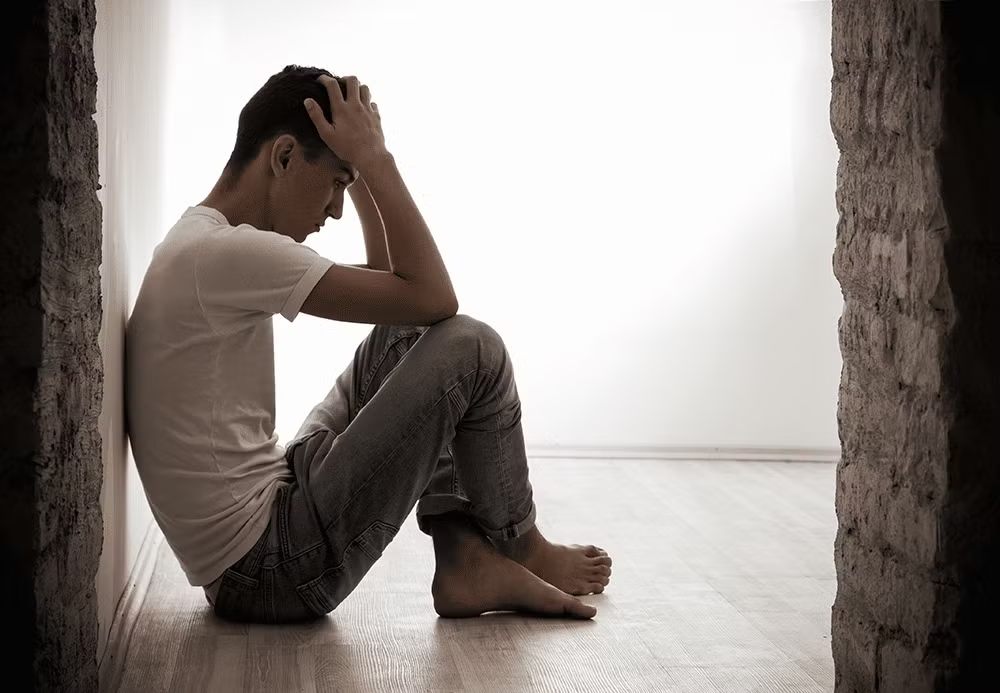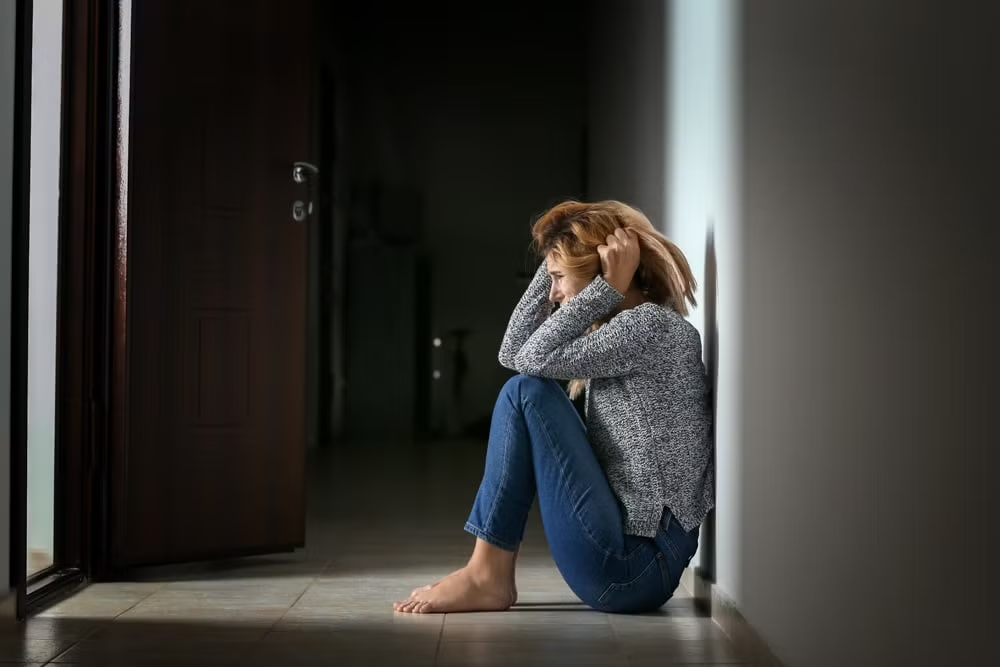Opioid Addiction Treatment in New Hampshire
Opioids are a class of drugs found naturally in the opium poppy plant. They work in the brain to produce various effects, including the relief of pain with numerous drugs. Opioids can be prescription medications or street drugs, such as heroin. Many prescription opioids are used to block pain signals between the body and brain. Unfortunately, opioids and opiates can be highly addictive. Thus, people that misuse opioids and opiates often need to attend opiate addiction treatment or opioid rehab.
Doctors typically prescribe opioids to treat an individual’s moderate to severe pain. In addition to controlling a person’s pain, opioids can make an individual feel happy, relaxed, or “high,” which is super addictive.
There are additional side effects of opioids that a person feels, such as
- Slowed breathing
- Constipation
- Drowsiness
- Nausea
What Are the Different Types of Opioids?
Prescription Opioids
Prescription opioids can be prescribed by doctors to treat individuals with moderate to severe pain. It can, however, have serious side effects and risks. The most common types of prescription opioids are:
- Oxycodone (Oxycontin)
- Hydrocodone (Vicodin)
- Morphine
- Methadone
Prescription opioids are often prescribed following injury or surgery or even for major health conditions such as cancer. In more recent years, there has been more of a dramatic increase in the use and acceptance of prescription opioids for the treatment of the following despite a serious lack of evidence regarding long-term effectiveness or risks.
- Chronic, non-cancer pain
- Back pain or osteoarthritis
Statistics About Meth Addiction

Fentanyl mixed into Heroin
Fentanyl is a synthetic opioid pain reliever. It’s more powerful than various other opioids, such as morphine.
Fentanyl is approved for treating severe pain, generally advanced cancer pain. The illegally made and distributed forms of fentanyl have been on the rise in several states. It is prescribed in the form of lozenges or transdermal patches.
Most recent cases of fentanyl-related overdose, harm, and death in the United States are linked to illegally made fentanyl. People typically sell fentanyl through illegal drug markets for the heroin-like effects it gives off.
People often mix fentanyl with cocaine and heroin as a combination product – without or with the user’s knowledge – to increase the euphoric effects that it brings. This often causes people to quickly develop fentanyl addictions.
The rates of overdose deaths involving synthetic opioids other than methadone, which includes fentanyl analogs and fentanyl, increased more than 16% from 2018 to 2019. Overdose deaths that were involving synthetic opioids were almost 12 times greater in 2019 than in 2013.
Over 36,000 individuals died from synthetic opioid overdoses in 2019. It was shown through the latest provisional drug overdose death report that through May 2020, there was an acceleration during the COVID-19 pandemic of overdose deaths.
Heroin
Heroin is referred to as an illegal opioid. About 40 individuals die every day from an overdose death that involves heroin in the United States. In fact, over 28% of the opioid overdose deaths were from heroin in 2019.
It is suggested that not only are individuals using heroin, but they are also abusing numerous other substances, including prescription opioids and cocaine. Practically all individuals who use heroin also use one other drug at least.
From 2018 to 2019, the heroin-involved overdose death rate had decreased by 6%. The factors that contributed to a decrease in heroin-involved related deaths include the following:
- Shifts from a heroin-based market to a fentanyl-based market
- Increased treatment provision for individuals using heroin
- Fewer individuals initiating heroin use
- Expansion of naloxone access
It’s vital to remember these key points about heroin. Heroin is a highly addictive and illegal opioid drug. A heroin overdose has the power to cause shallow and slow breathing, coma, or even death. When individuals use heroin along with alcohol or other drugs, this particular practice is considered to be extremely dangerous because the risk of overdose is increased.
Typically, heroin is injected, but it can be snorted or smoked. When individuals inject heroin, they are at risk of very serious, long-term viral infections such as:
- Hepatitis B
- Hepatitis C
- HIV
They are also at risk of bacterial infections of the bloodstream, heart, and skin. Heroin-involved overdose deaths were about five times higher in 2019 than it was in 2010. Nearly about 130,000 people died from overdoses deaths to heroin from 1999 to 2019.
What Are Causes of Opioid Addiction?
The opioid addiction crisis in the United States is one of the most significant public health emergencies of this generation. In fact, millions of Americans suffer from opioid addiction. The causes of opioid addiction are extremely complex. This condition results from a combination of environmental, lifestyle, and genetic factors. Numerous of the genes that are thought to play a major role in opioid addiction are involved in the endogenous opioid system. The system is the body’s internal system for regulating reward, pain, and addictive behaviors.

Variations in the genes that are known to provide instructions for creating opioid receptors have been extensively studied as genetic risk factors for opioid addiction. Researchers suspect that the differences in the receptor’s function and structure influence how an individual’s body responds to opioids. There have also been variations in the genes that involve various aspects of the nervous system function that have been studied as opioid addiction risk factors.
A few of the genes play a role in numerous neurotransmitter pathways, which chemicals called neurotransmitters, and their receptors relay signals from one neuron to another. Other genes provide instructions for proteins that assist in controlling the following:
- Specialization (differentiation) of neurons
- Survival
- Growth
Although variations in numerous of these genes have been associated with opioid addiction, it is not clear how the genetic changes influence how the individual’s nervous system responds to opioids. There are also nongenetic factors that play a role in opioid addiction. The factors that have been proven to increase the risk of opioid addiction include:
- Certain personality traits such as sensation seeking and impulsivity
- Associating with others who have experience with opioid abuse and other substances
- Having easy access to illegal or prescription opioids
- Depression or other psychiatric disorders
- Living in poverty or a rural area
- A history of substance abuse
- Childhood abuse or neglect
What Are Signs and Symptoms of Opioid Addiction?
The signs and symptoms of opioid addiction can be behavioral, psychological, or physical. One clear sign of opioid addiction is not being able to stop engaging in opioid addiction. Another clear sign of opioid addiction is when you’re not able to stop using more than what is prescribed by the doctor.
You might have an addiction to the use of opioids if you are craving the drug, but you also feel you can’t control the urge to engage in the drug. If you continue to use the drug without your doctor’s consent when it’s causing problems for you, you may also have an opioid addiction. Individuals with opioid/opiate addictions should seek opiate addiction treatment or opioid rehab.
Other Signs and Symptoms of Opioid Addiction
- Slow or shallow breathing rate
- Abandoning responsibilities
- Poor decision making
- Lowered motivation
- Physical agitation
- Anxiety attacks
- Mood swings
- Depression
- Irritability
What Are the Different Medications Used to Help Treat Addiction Treatment?
Methadone
There are three drugs approved by the FDA for the treatment of opioid dependence: buprenorphine, methadone, and naltrexone. When methadone is administered properly, it is included in counseling treatment services and is always provided in a clinical setting when used to treat opioid use disorders. Methadone helps to address cravings and relieve opioid withdrawal symptoms, which must typically be administered daily in a certified opioid treatment program (OTP) unless a patient meets program-specific criteria for take-home doses. The medication buprenorphine also assists in relieving opioid cravings without contributing the same high as various other opioid drugs.

Woman having panic attack indoors
Methadone is typically prescribed by many physicians from their office settings and is generally a daily dose that is placed underneath the tongue. Methadone can also be delivered as a once-a-month injection or even through thin tubes that are inserted underneath the skin. This lasts for six months. Both medications activate opioid receptors in the body that suppress cravings.
Methadone and buprenorphine are similar and effective in side effects and safety. These medications are generally used for maintenance treatment. They can also be utilized to taper an individual off of opioids. However, it is more common for patients to relapse, and physicians must try something different with the patients who relapse. Patients who are extremely motivated and have decent social support normally tend to perform better with such therapies.
Naltrexone
Naltrexone is an extremely different medication from methadone and buprenorphine. It does not turn the opioid receptor on but instead blocks the sedative and euphoric opioid effects. An individual’s system must be thoroughly free of all opioids before actually beginning to use naltrexone. Naltrexone can be taken as a once-a-month injection or orally.
What Are Treatment Options for Opioid Addiction Treatment?
There are numerous treatment options for opiate addiction treatment at an opioid rehab facility. The chances of beating narcotic addiction are greater with long-term maintenance therapy, which includes behavioral therapy and some form of counseling. This is typically known as medication-assisted treatment or MAT.
When you engage in counseling for opiate addiction treatment at an opioid rehab facility, qualified health professionals will be able to assist you with any social or personal matters you are experiencing. These can include the following:
- Individuals around you that engage in drug and alcohol use
- Work or home issues
- Feelings of self-worth
Therapy Methods for Opioid Addiction Treatment
The treatment plan can involve any of the following therapy methods for opioid or opiate addiction treatment at an opioid rehab facility.
Contingency Management – This therapy uses rewards or incentives to assist individuals in meeting goals such as attending treatment and sticking with their medication regimen.
Cognitive Behavioral Therapy (CBT) – This form of therapy shows you why you might be engaging in drug use. It also builds your belief that you’re able to address your problems and overall teaches you to effectively cope with your struggles.
Motivational Interviewing – This therapy helps you in identifying reasons why you might not want to change your behavior.
12-Step Groups – This form of therapy involves defined goals such as getting a sponsor or attending meetings.
Family Therapy – This therapy brings in individuals who genuinely care about you to strengthen the treatment of opioid addiction at an opioid rehab facility.
Residential Treatment – Individuals live with people undergoing similar circumstances and can support one another throughout opioid or opiate addiction treatment recovery. Some opioid rehab centers offer inpatient programs for those who have a medical condition. This treatment option will also offer numerous kinds of counseling, behavioral therapy, and medications.
Support Groups – This form of therapy introduces you to individuals who have experienced what you are going through. Such individuals can offer their tips on how to reach opioid or opiate addiction treatment recovery at an opiate rehab facility. To find a treatment provider, go to the Substance Abuse and Mental Health Services Administration’s (SAMHSA) Behavioral Health Treatment Services Locator.
Get Started on the Road to Sobriety at Live Free Recovery
If you, a family member, or a loved one is struggling with opioid addiction and are in need of opioid rehab, know that you do not have to fight this battle alone. It is recommended to find a healthcare provider or support. Substance use disorders can be effectively treated on an outpatient basis or in an inpatient setting. Outpatient Behavioral Healthcare Services offers professional, multi-disciplinary substance and mental health treatment through a number of specialized clinical care teams. Either way, there are typically medications that one can use during the treatment of opioid dependence to overcome physical dependence on opioids. Contact us today to get started on the journey to recovery from opiate or opioid addiction.
References:
Did this article answer your questions?
"*" indicates required fields
Take the First Step Towards a Brighter Tomorrow
At Live Free Recovery, we’re committed to walking alongside you on every step of your journey. Our compassionate team is here to provide the guidance and support you need to overcome addiction and reclaim your life. Don’t wait—reach out today to speak with someone who truly understands your struggles and can help you take that important first step toward healing and a fresh start.
Your path to recovery starts here.
